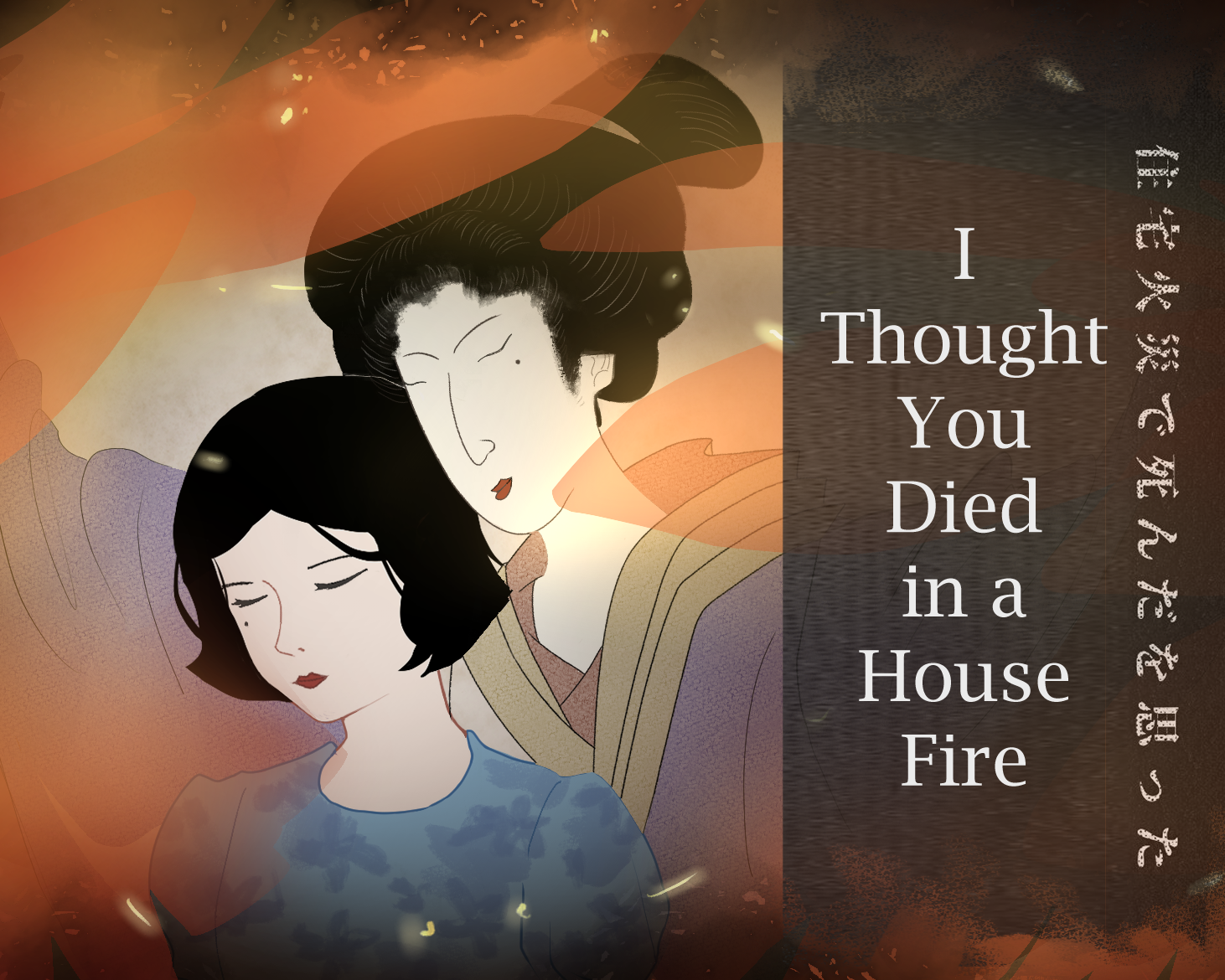
Inspired by the traditional Japanese board game, Sugoroku, this visual novel follows Yū, a young woman returning to Kamakura from the US in 1926 after the sudden death of her parents. As she explores her childhood home, Yū discovers burned Sugoroku board pieces, each revealing a memory of her mother Seiko’s past. Through piecing together these remnants, Yū uncovers hidden truths about Seiko’s life as a wife and mother during the Meiji era, and the mysterious fire that claimed her family.
Drawing on the Young Girl Festivals Sugoroku board from 1906 and the experiences of the first Japanese women who studied abroad, such as Tsuda Umeko, this game examines themes of education, Western influence, and the shifting roles of women in early 20th-century Japan. As Yū unravels her mother’s past, she must confront painful secrets and the societal pressures that shaped Seiko's life and her demise.
Combining the virtues and motifs often illustrated by Sugoroku, I Thought You Died in a House Fire reveals the complex series of events, tragedies, and privileges dealt in “The Game of Life”.


